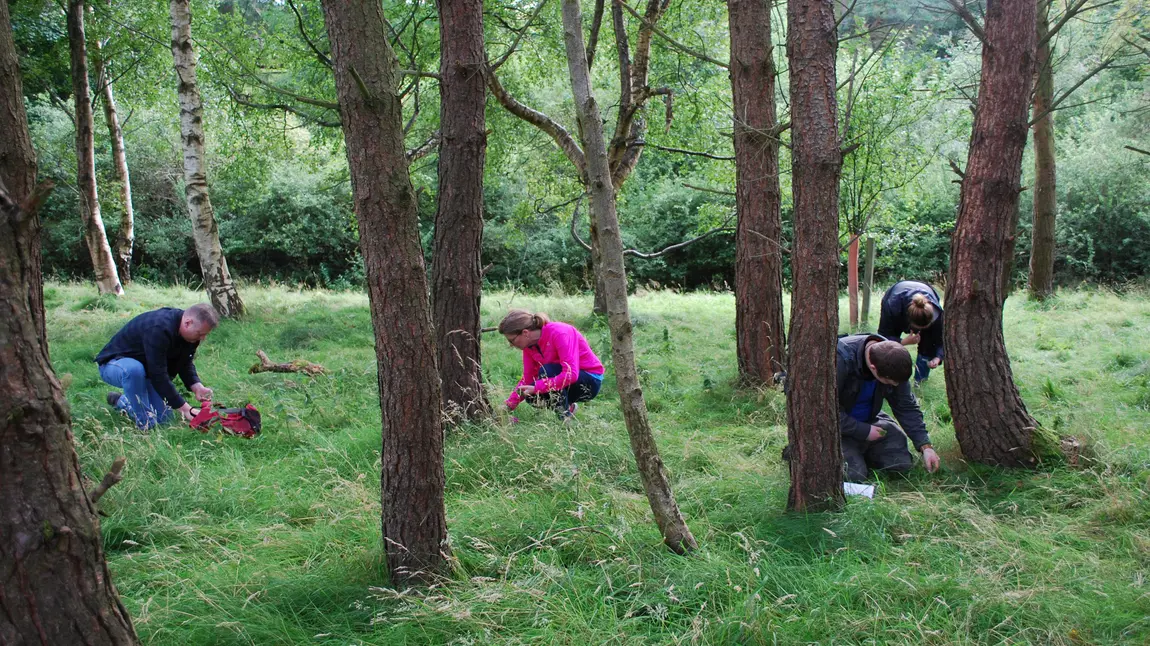Walk on the wild side with our foraging favourites

Blackberries
Dermot Hughes, forager

My favourite foraged item is the blackberry. Apart from being super delicious and abundant, there are so many brilliant and simple things you can make, including jams and jellies, crumbles and other puddings, wines and drinks. But best of all is to simply scoff loads as you walk along the hedgerows in autumn.
- Dermot from Forage Ireland runs foraging events all year, including at Diamond Jubilee Wood in Whitehead, Country Antrim which has seen conservation events funded by The National Lottery Heritage Fund. Find out more on the Forage Ireland website.
Dryad's Saddles
Phil Leng, foraging instructor

Dryad's Saddles are huge mushrooms that actually taste of watermelon! They are fairly common, but an amazing sight when you see them in full fruit: the cap can get to more than 50cm in diameter.
When young they can be used in salads, or cooked (where they take on a more normal mushroom taste). When older and tougher you can still dry them and powder them to make a good mushroom stock.
- Phil is an instructor for Wild Food UK who are hosting a range of foraging courses over the summer including at Thetford Forest, which has received funding from The National Lottery Heritage Fund.
Seaweed
Fergus Drennan, wild food experimentalist and educator
I love seaweed as a wild ingredient, in large part because the fun of collecting from a wild coastline on a sunny day, and then swimming, is an an integral ingredient of any seaweed recipe. It's so versatile. The different edible varieties can be used in countless recipes, both sweet and savoury.
Dried, crushed and powdered, they can be used as a seasoning, or added to flour for making bread, biscuits, pasta and pastry. Some are suitable for boiling, steaming or shallow frying as a side vegetable, or using as a noodle or lasagne sheet. They can be added to soups and stews, deep-fried until crispy, or used to wrap fish or rice - you can even make your own nori sheets!
- Fergus runs a range of foraging, crafting and feasting events across the UK inclusing on the Isle of Wight. Find out more on the Fergus the Forager website.
Chanterelle mushrooms
Adrian Rose, expert in foraging and bushcraft

My favourite wild food has to be Chanterelle mushrooms. To find a patch of these glorious egg yolk yellow gems has to be the highlight of any walk. With their subtle fruity floral taste, taking these amazing fungi from forest to plate surely is food for the mind, body and soul. It's not just a meal but a journey back in time, a way to reconnect with the natural world.
- Adrian will be leading foraging events as part of Foodie Foray (22-29 September) held in the Forest of Bowland, which has received funding from The National Lottery. Find out more on Adrian's website.
Foraging rules
It is important to know what you are doing when foraging and eating wild food, especially as some can be rare, protected or even poisonous. Always seek permission from the landowner. Read The Woodland Trust's foraging guidelines before you set out!